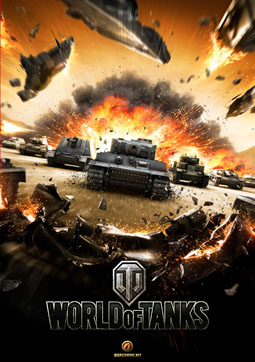
Thanks to WPRI.com reporter Ted Nesi’s Twitter pontifications, we’ve learned from Boston Magazine‘s Jason Schwartz that 38 Studios had planned to release their flagship game (codenamed “Project Copernicus“) under the “freemium” model of gaming (a portmanteau of “free” and “premium”, referring to the dual use of free and premium accounts, dominant in tech-savvy South Korea). It’s a bit like the razor blade model of business; send out the initial product for free, hook the customer, and then charges for supplemental services. Essentially, in a freemium game, players can play essentially everything with a free account; you can download the game online and then play with no additional costs. However, players can buy perks or unlock additional content for actual money, giving them a leg up on other players. Massively Multiplayer Online Roleplaying Games (MMPORGs) lend themselves particularly to this kind of business model.
This was actually a smart business move for 38 Studios. OnlyWorld of Warcraft can maintain a subscription model, mainly because they operate as the Facebook of online games; people play because their friends are there. They also benefit from the sunk cost fallacy; since players have already blown hundreds or thousands of dollars on World of Warcraft, it would be insane to stop paying and thus stop playing now. It’s a logical fallacy, but plenty of businesses profit off of it. That 38 Studios had managed to convince Curt Schilling to come around to the free-to-play model shows a willingness to adapt to changing circumstances.
Unfortunately, learning now that it would’ve been an announcement that “shocked the world” (according to Mr. Schilling’s remarks to Mr. Schwartz) is too little too late, and adds fodder to the narrative that 38 Studios was not a well-run company (one which is indelibly created from Mr. Schwartz’s previous story on 38 Studios). I was bashing 38 Studios for relying on the subscription model back in mid-February in some of my earliest writing for RI Future. It was a bad model in 2010, when the deal that moved 38 Studios to Rhode Island was started. Had 38 Studios announced that they were intending a freemium-type game much earlier (say, at any time before the company missed payroll), it could’ve given them serious boost. Plenty of projects continue on the basis of fan goodwill (plus, fanboys = identified market, which investors like to hear about).
An example of that is the venerable MechWarrior/BattleTech series of games. Beginning in 1984 as a board game, MechWarrior was the video game series, which had a great hit with 1995’s MechWarrior 2 (a personal favorite of mine), but ultimately the developer shut down in 2007 after subsequent games failed. Its founder is working with a new developer to create MechWarrior Online. It’s a free-to-play game already in its Open Beta stage of development (anyone can pay to help test the game while it’s be developed ahead of its planned release).
All of this is to miss another point I’ve made before: nothing was pointing to any great innovation on the part of Project Copernicus. In fact, that this would be the first triple-A release that was free-to-play would’ve been the first signal that 38 Studios was actually bringing something unique to a market crowded with same-samey games. But what we were getting about Copernicus is that it was essentially like Kingdoms of Amalur, a relatively old-hat type of game. In fact, World of Warcraft wasn’t particularly unique. It simply followed Apple’s model of development; rely on your dedicated fan base from other products to purchase your item and generate good buzz, let the innovators go out and do their thing, then do what they did, but better.

To compete in the online gaming arena, you need something new. The Belarusian company Wargaming.net has provided that with World of Tanks and done exceedingly well. Having played the game, it’s a incredibly fun initial experience, though there’s a bit of frustration as more skilled people turn your fun tank into Swiss cheese (I’m understating, more than once I’ve had to quit the game to let my anger over how much I suck at it subside). Wargaming.net is spinning the game off into World of Warships and World of Warplanes.
Alternatively, if new doesn’t float your boat, open is a good idea as well. Paradox Interactive is an example of a gaming company which doesn’t keep its cool stuff under its hat (they’ve recently announced they’re starting on the fourth version of Europe Universalis, their flagship game which launched the “grand strategy” genre of computer games). They’re always giving more information to fans about their games, via developer diaries with insight into the process and features, and also by fostering a lively forum community.
38 Studios seemed to neglect this strategy. What did we know about Copernicus? Not much. Perhaps Kingdoms of Amalur was to be its predecessor and tie into the world. In the end, we didn’t even know its actual name.
So yes, free-to-play was an intelligent decision for 38 Studios. It’s a shame that we’re learning it now. But Governor Lincoln Chafee didn’t mess the company up, the people tasked with running it did. Had free-to-play been announced as 38 Studios was facing bankruptcy it would’ve looked desperate. It needed to be sold that way from the start. Of course, hindsight is 20/20, but then I was saying this stuff two years ago (just not publicly on the Internet). And I still standby what the majority of Rhode Islanders believed at the time, that this deal should not have been made.
Note: I’ve used “free-to-play” and “freemium” interchangeably here. Technically, that’s not exactly correct, one relies on ads and/or micro-transactions to generate profit, the other relies on paid accounts and occasionally ads and micro-transactions to turn a profit. However, they’re near enough as to make no difference here, and many of the games I mentioned use them interchangeably as well when describing their own games.



